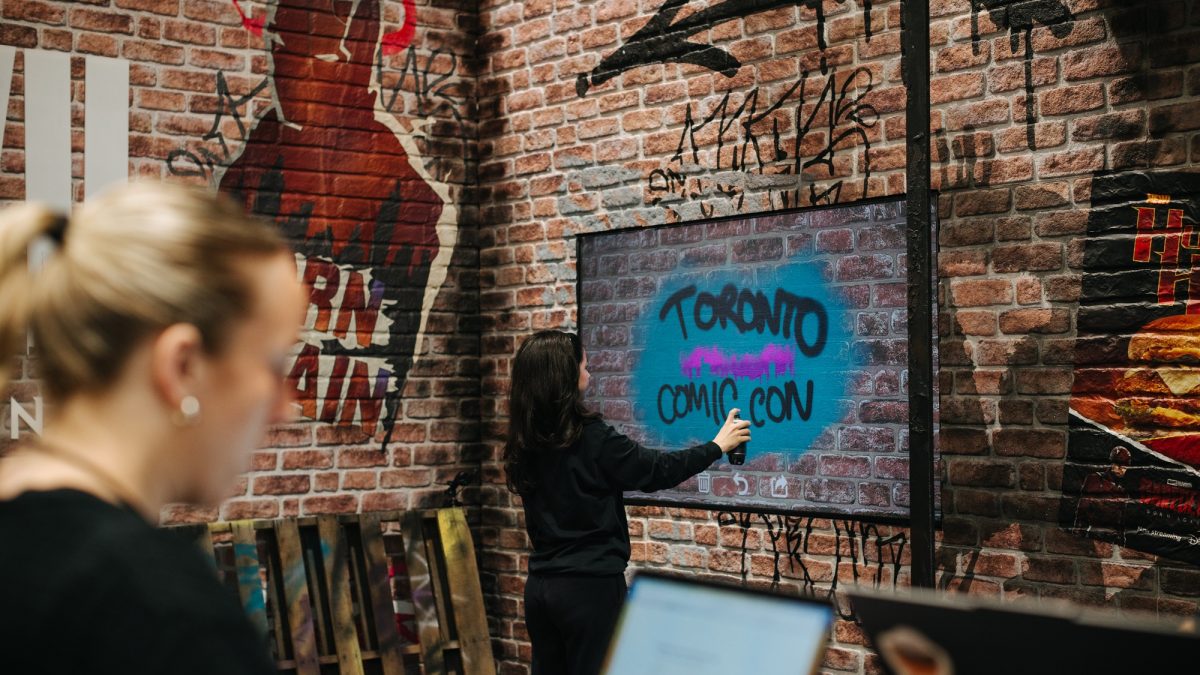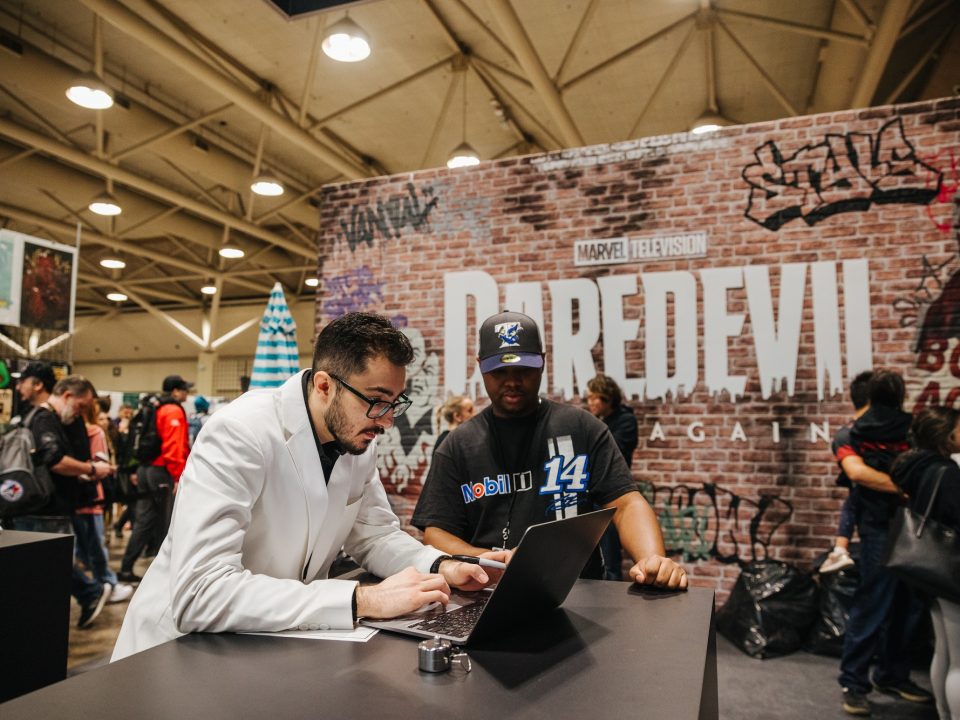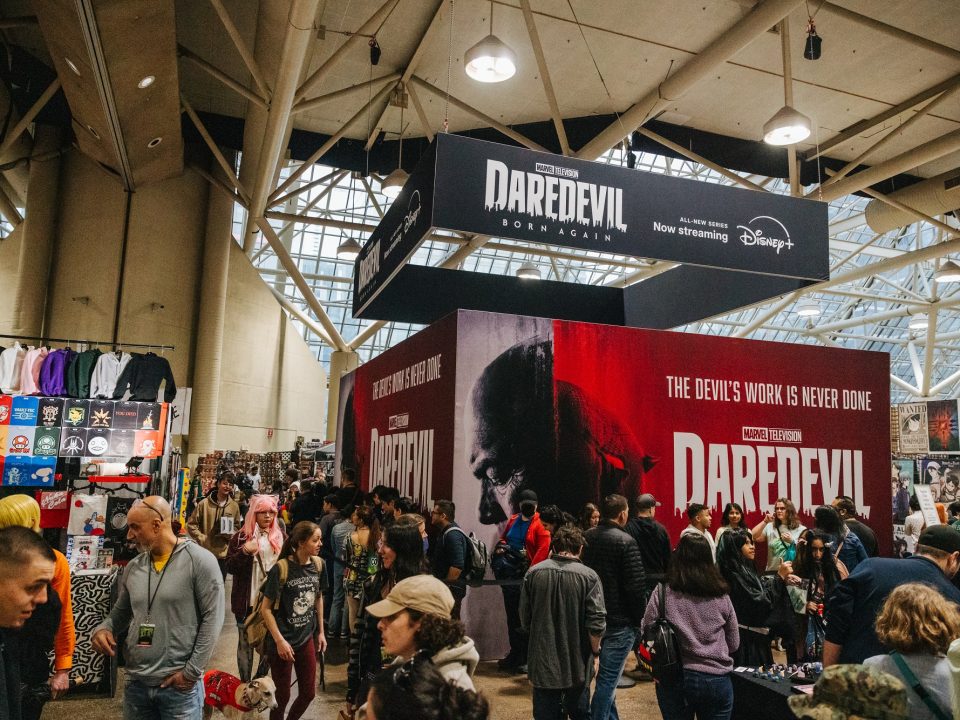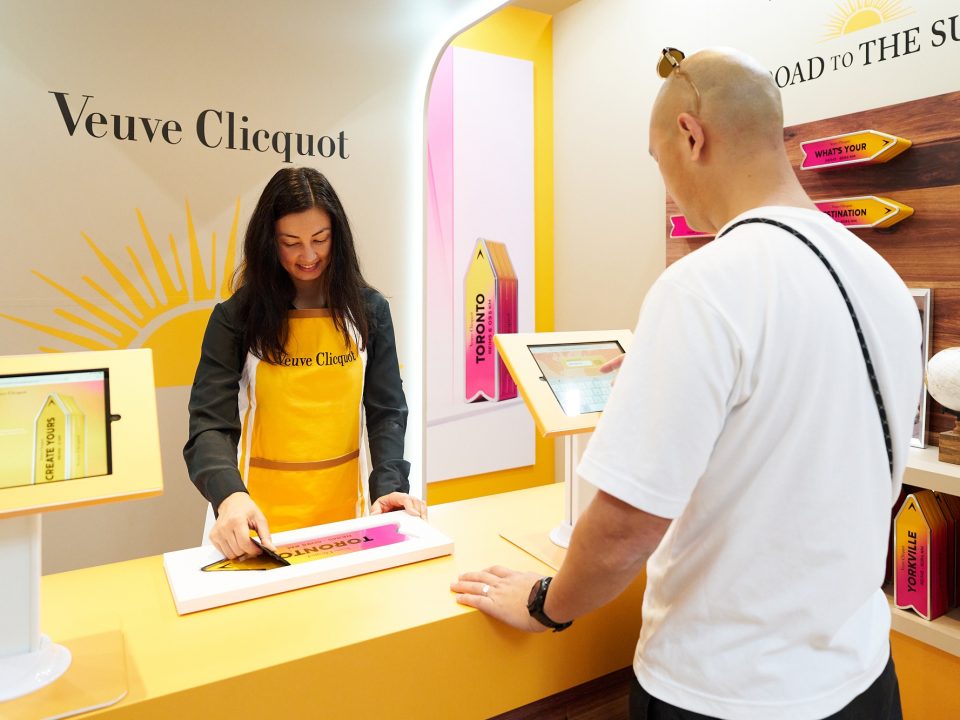Humanized Tech: How AI-Driven Experiences Are Redefining Events

Smart Conference Design Tips That Elevate Every Touchpoint
September 10, 2025Technology has long been part of the event world.
Whether it be the slide projectors from the 1960s to modern day ticket and even bracelet scanners, event organizers have been making ready use of the tools and technology available.
In recent years, of course, one of the biggest shifts in the industry (as well as most industries) has been AI. While a lot surrounding the use and ethics of AI is still being decided, it has nevertheless been making inroads in the event industry.
As part of this push, AI is becoming more humanized – that is, able to respond, adapt, and personalize in ways that feel less machine-made and more guest-focused.
Let’s take a closer look at how AI is transforming live events, what current research and trends show, and how you can weave these innovations into your own activations while still keeping things human-centred.
1. Personalization at Scale through Predictive Insights
One of the strongest use-cases today is using AI to analyze attendee data. Any event tends to gather quite a bit from guest preferences, registration details, booth attendance and so forth. By being able to leverage this date it helps organizers deliver future personalized journeys.
This isn’t just a niche, experimental technology either. According to some sources, event tools are already capable of letting organizers “tailor event experiences by using attendee data to create custom agendas and personalized communication.” Doing so, AI tools can often find patterns and preferences faster in large pools of data than human researchers can.
Of course, having this kind of data allows for greater personalization and this kind of personalization helps shy or busy attendees feel that the event is built for them, improving satisfaction and perceived value.
2. Emotionally Intelligent Interactions
Humanized tech isn’t just about data. It’s also about detecting and responding to human emotions.
There’s growing work around AI systems that can read facial expressions or emotional cues (smiles, tone etc.), and adapt experiences accordingly. At some events, for example, “emotionally intelligent AI” photo booths that sense guest mood and adapt their animations, prompts, or filters to match feelings like excitement or calm.
Similarly, in a festival context, a study of Portuguese consumers found that AI used to enhance the experience (such as via better information, engagement, and trust) can also deepen emotional connection with brands present at the event.
In other words, when leveraged in a careful and not overbearing way, event organizers can add AI technology as one of the tools on their toolbelt.
3. Immersive Storytelling & Dynamic Environments
Augmented Reality (AR) and Virtual Reality (VR) aren’t new, but they’re moving from novelty to expectation.
Brands are using AR/VR / mixed reality to tell stories that adapt with audience presence and feedback. For example, one source spotlights AR/VR-enabled interactive storytelling as one of its top trends. These tools are further enhanced by the addition of AI which reads and maps the experience accordingly.
For instance, dynamic stage elements, projection mapping, or immersive installations that change based on audience input make events feel less static and more ecosystem-like are totally possible. This makes it seem that the guests aren’t just watching but participating.
4. AI in Event Operations: Making the Backstage Smarter
While guest-facing innovations are exciting, a lot of humanized tech happens behind the scenes and it has a big impact.
AI is helping event planners forecast attendance, optimize staffing, predict traffic bottlenecks, and streamline logistics. Research shows that AI-driven resource allocation and predictive analytics reduce waste, save cost, and improve guest comfort.
At EMS (Experiential Marketing Summit), speakers have also discussed use of custom ChatGPT models, Copilot, and Leonardo AI to generate creative ideas, automate repetitive tasks, or help with schedule or content adjustments on the fly. While not every organizer is leveraging these tools, their assistance is becoming increasingly commonplace.
5. Smarter Networking: AI-Powered Matchmaking
One of the most human parts of any event is the connections made – in other words, networking.
AI is helping make this more effective and less awkward. With tools that use profile data, interests, and behavior, attendees can be matched with others who share affinities or goals, often before the event even begins. This increases the chances that attendees find value, lead to meaningful relationships, and leave with a sense of community.
6. Considerations: Privacy, Authenticity & Balance
Humanizing tech doesn’t mean blindly adopting every AI tool. There are trade-offs to manage. Among them:
- Privacy & Trust: Guests may be wary if they feel too surveilled. Transparent communication about how data is used is essential.
- Maintaining Human Touch: Over-automation can feel cold. Guests still value genuine human interaction. AI should augment human staff, not replace warmth.
- Technical Reliability & Bias: AI models may misinterpret sensorial cues, or perform poorly in noisy, unpredictable settings. Testing and contingency planning are critical.
Conclusion
AI-driven experiences are redefining what it means for an event to feel human. When implemented thoughtfully, they allow your brand to deliver meaningful moments and experiences that are at once personalized, emotionally responsive, and memorable.
That said, it is always best to remember at the end of the day that AI is primarily useful as a tool and not a one click solution to all your planning.
At Tigris Events (powered by Simon Pure), we believe tech should enhance, not replace, the human touch. We are excited by the opportunities that AI can bring, especially when it leads to crafting events that feel unforgettable.
FAQ: Humanized Tech & AI-Driven Event Experiences
- What does “humanized tech” mean in the context of events?
Humanized tech refers to AI tools and systems designed to feel intuitive, responsive, and personal, whether through emotion recognition, personalized agendas, or adaptive activations. The goal is to make technology enhance, not replace, human interaction at event
- How can AI personalize an attendee’s event journey?
AI can analyze attendee data (like preferences, past behavior, or registration details) to suggest sessions, create custom agendas, and recommend networking matches. This ensures every guest feels the event was designed just for them.
- Are AI-driven event experiences replacing staff or human ambassadors?
No. AI should augment, not replace, the human touch of brand ambassadors. For example, AI can streamline check-in or suggest matches, while trained staff still deliver warmth, empathy, and real-time adaptability that machines can’t replicate.
- What are the risks of using AI in live events?
The biggest concerns are privacy, over-automation, and technical glitches. Transparency around data use, backup plans for tech failures, and balancing digital with personal touchpoints are essential for success.
- How can brands start experimenting with AI at their events?
Begin small: try AI-powered photo booths, matchmaking apps, or chatbot support. As confidence grows, integrate predictive analytics for staffing, crowd flow management, or even real-time personalization to scale impact.




